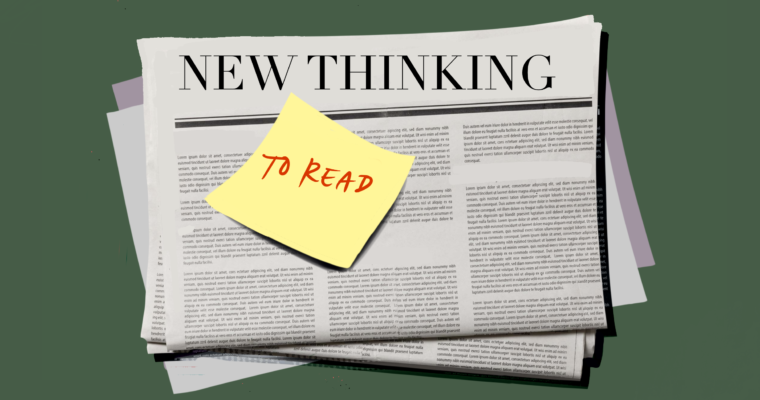This week’s recommended reads illuminate our discussions on the COVID19 crisis, its economic impact, and the quality of governments’ policy responses:
1 | The Race Between Economics and COVID19 in Project Syndicate, by Mohamed El-Erian
“For years, the economics profession has suffered from a stubborn reluctance to adopt a more multidisciplinary approach. But now that the COVID-19 pandemic is transforming economic life the world over, the profession has no choice but to leave its comfort zone.”
2 | Hospital Bailouts Begin—for Those Owned by Private Equity Firms in the American Prospect, by Eileen Appelbaum & Rosemary Batt
“After compelling hospitals to take on huge piles of debt through leveraged buyouts, private equity firms are poised to line up for taxpayer bailouts.”
3 | Why the Largest Stimulus in History Still Is Not Enough in Barron’s, by Roman Frydman
“As unreliable a guide to economic performance as many consider the stock market to be, this time the market has it right. It is obvious to investors that the problems we face stem from the public-health crisis—and cannot be cured by the “stimulus” package.”
4 | Economic numbers don’t matter right now. Government must help Americans get by in the Guardian by James K. Galbraith
“The economy cannot use stimulus when there is nothing to buy!”
5 | Why Coronavirus Could Hit Rural Areas Harder via Syracuse University, by Sharon Monnat.
“On the one hand, rural parts of the U.S. may be comparatively better off than urban places due to lower population density in rural areas. Lower population density reduces opportunities for virus spread. On the other hand, there are several features of rural populations and places that increase their risk of coronavirus-related mortality and other long-term health impacts.”
Every week, we share a few noteworthy articles that showcase the work of new economic thinkers around the world. Subscribe to receive these shortlists directly to your email inbox.
